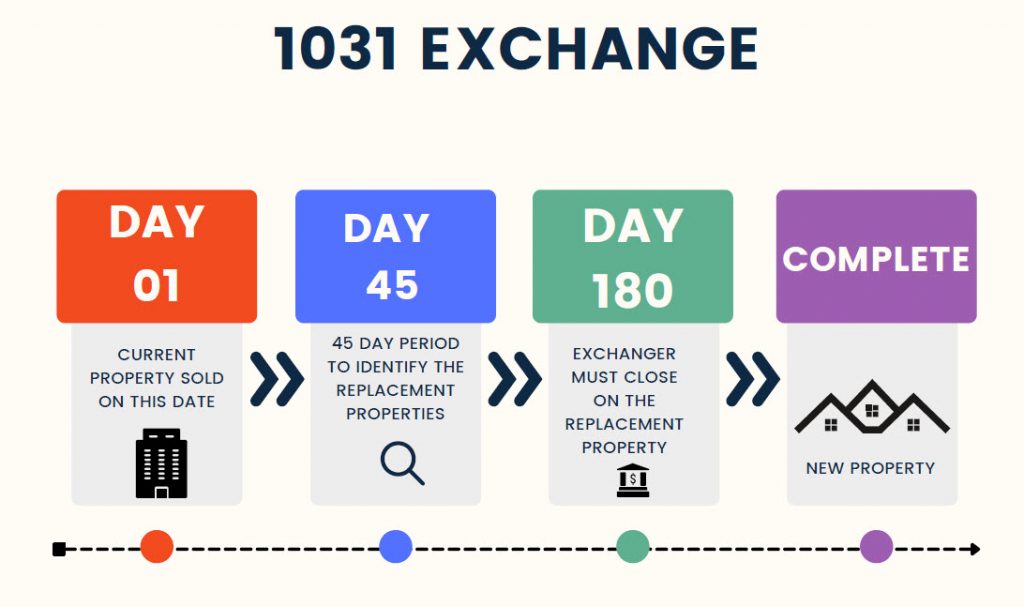The 1031 exchange is the best strategy for avoiding hefty capital gains taxes when selling real estate, particularly investment properties. However, one question that comes into the minds of many sellers is, is a 1031 exchange bad for a seller? While it’s widely known for its tax benefits, not everyone is sure if it’s the right move, especially from a seller’s perspective.
So, in this guide, we’ll explore whether a 1031 exchange is truly a win for the seller or if it might not be the best option.
What is a 1031 Exchange?
1031 exchange is also known as a like-kind exchange. It allows you to sell one investment property and use the funds to purchase another similar property, all while deferring taxes on any gains you made from the sale.
In a traditional sale, the profits from selling an investment property are subject to capital gains taxes. Depending on your tax bracket, this can sometimes be as high as 20% – 25%. A 1031 exchange helps you postpone these taxes indefinitely if you reinvest in like-kind properties.
By doing this, investors can leverage the entire sale proceeds into their next purchase. Also, it gives them more buying power and the ability to continue growing their real estate portfolio.
Is a 1031 Exchange Bad for a Seller?

When considering is a 1031 exchange bad for a seller, the answer isn’t a simple yes or no. It depends on your situation, goals, and understanding of the rules involved. Let’s break down the main benefits and drawbacks for a seller to provide a clearer perspective.
The Benefits of a 1031 Exchange for Sellers
- Tax Deferral: The most obvious benefit is that sellers can defer capital gains taxes by reinvesting in like-kind property. Instead of losing a portion of your profits to taxes, you get to keep the entire amount to invest in a new property, thus increasing your buying power. This is especially important for real estate investors looking to grow their portfolios without the burden of high tax bills.
- Improved Cash Flow: Since you’re not paying taxes on the sale immediately, you’ll have more cash to invest in a new property. This extra capital might allow you to purchase a higher-value property or multiple properties. Moreover, it potentially increases your cash flow.
- Portfolio Growth and Diversification: A 1031 exchange allows you to sell one property and use the proceeds to buy another or multiple properties. This is particularly useful for sellers who want to diversify their holdings, such as moving from a single residential property to multiple commercial properties or investing in different markets across the country.
- No Limit on Exchanges: The IRS allows you to perform a 1031 exchange as often as you like. You can continue rolling over your gains into new properties indefinitely, deferring taxes as long as you keep reinvesting. This flexibility is one reason real estate investors often use 1031 exchanges as a long-term strategy.
Drawbacks for Sellers
- Strict Time Constraints: One of the biggest challenges in a 1031 exchange is the strict time limits imposed by the IRS. You have just 45 days after selling your property to identify replacement properties. Also, within 180 days, you have to close the purchase. These deadlines can create pressure and limit your flexibility, especially in competitive markets where finding a suitable replacement property may be difficult.
- Limited Flexibility in Property Types: While the IRS allows a wide range of properties to qualify for a 1031 exchange, your new property must be “like-kind.” For example, you can’t sell an office building and purchase a personal vacation home. The requirement that the properties be similar in nature or use can sometimes limit your choices, depending on the market and investment goals.
- Potential Debt Issues: If the replacement property has less debt than the property you sold, you might be required to pay taxes on the difference. This is known as “boot,” which can trigger a tax liability even in an exchange designed to defer taxes. Sellers should carefully consider the debt structure of the property they’re selling and the one they’re buying to avoid any unpleasant surprises.
- Fees and Costs: A 1031 exchange isn’t free. You’ll likely need the assistance of professionals, such as attorneys and qualified intermediaries. This will ensure everything is handled correctly. Moreover, these additional costs can eat into your profits. Therefore, weighing the potential tax savings against the expenses involved in completing the exchange is important.
How Does a 1031 Exchange Affect the Seller?
When considering how does 1031 exchange affect the seller, it’s important to evaluate the potential impact. Sellers who can meet the strict timeframes, find suitable replacement properties, and plan their reinvestment strategies can benefit from deferring taxes and expanding their investment portfolio.
However, if you’re not well-prepared or don’t fully understand the complexities involved, a 1031 exchange may cause trouble.
Some sellers find that the tight deadlines and property restrictions limit their flexibility and could force them into purchasing properties that don’t align perfectly with their investment goals.
Working with professionals like a tax advisor, a real estate agent experienced in 1031 exchanges, and a qualified intermediary is essential to ensure the exchange runs smoothly.
At Blackstone Commodity Group, we make investing in rare coins and precious metals simple and secure. Whether you’re looking to open a precious metals IRA account or diversify with gold, silver, platinum, or palladium, we offer competitive pricing and expert guidance. We also offer alternative investments like crypto and real estate, helping you build and protect your wealth.
Is a 1031 Exchange Right for You?

A 1031 exchange is best suited for sellers who plan to reinvest the proceeds into another investment property for growth or diversification. If you’re looking to cash out and exit the real estate market, this strategy won’t work. Additionally, sellers with a long-term vision for expanding their real estate holdings may find a 1031 exchange particularly beneficial.
However, it’s essential to recognize that this strategy doesn’t eliminate taxes; it simply defers them. Eventually, when you decide to sell your investment property without reinvesting in another, those deferred taxes will come due.
Summary
In the end, the answer to is a 1031 exchange bad for a seller depends largely on the seller’s goals and understanding of the process. For those looking to reinvest in real estate and take advantage of tax deferral, a 1031 exchange can be a powerful strategy for building wealth. Always consult professionals before starting a 1031 exchange to ensure it’s the right decision for your financial situation.
Disclaimer
The content provided on this blog is for informational and educational purposes only and does not constitute financial or investment advice. While we strive to provide accurate and up-to-date information, you should not rely on this content as a substitute for professional financial advice. Any financial decisions you make are done so at your own risk, and we encourage you to consult with a licensed financial advisor before making any investment decisions.
The views and opinions expressed in this blog are solely those of the authors and do not necessarily reflect the views of any affiliated entities. The information presented here is not intended as a solicitation or recommendation to buy, sell, or hold any financial product.


